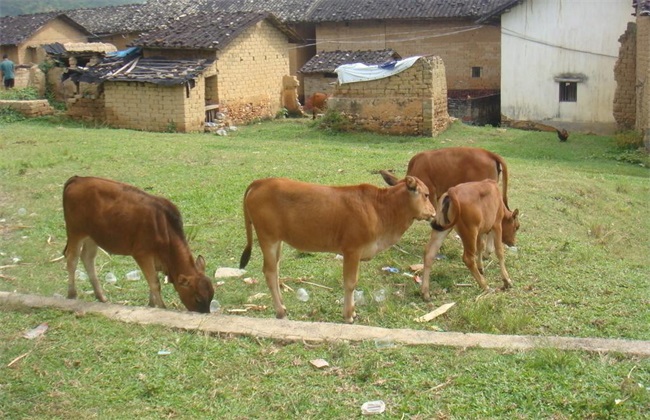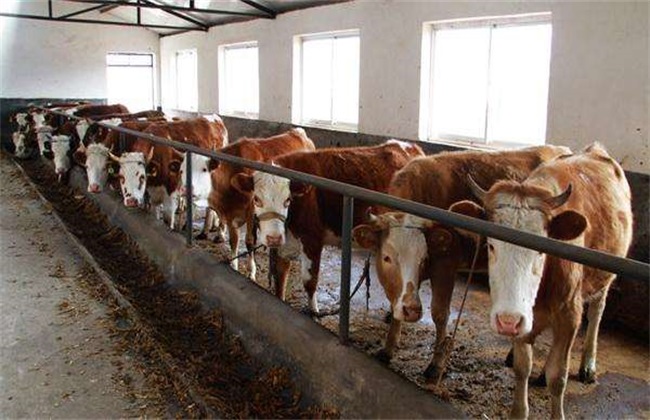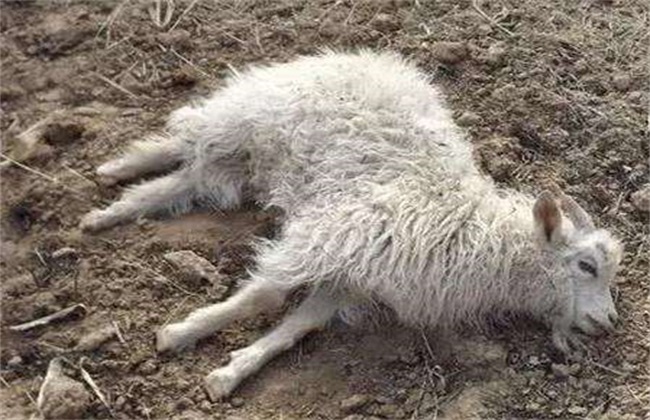Common problems that newborn calves should pay attention to
After birth, due to changes in the growth environment and lifestyle changes, if not managed properly, then it is easy to have a lot of problems. These problems can have a great impact on the growth of newborn calves and may even lead to their death. Therefore, if you want to raise newborn calves well, you must pay attention to several common problems after birth. What exactly do you have? Let's take a look at it.

1. To prevent fake death
When the cow is in labor, the fox fairy may give birth for too long because the fetal membranes do not rupture in time. Or it is because the calf is born in reverse and the calf gives birth very slowly, while the calf has a weak heartbeat and weak "fake death" because of breathing difficulties. At this time, we should timely wipe the calf's mouth and nose with clean gauze. Then lay the calf flat, and then gently press its chest and abdomen to promote breathing and heartbeat back to normal.
2. Prevention of umbilical cord hemorrhage
If there is something wrong with the heart function of the calf after birth, the umbilical vein will be affected when it is closed and cause umbilical cord bleeding. If this happens, then it is necessary to re-ligate the umbilical cord in time and disinfect the medicinal iodine at the broken end of the umbilical cord. If the broken end is compensated and the blood vessel is still in the umbilical hole, fill the umbilical hole with sterilized gauze, stop the bleeding and then suture it.
3. Prevent inflammation of umbilical cord
When severing the umbilical cord, if the disinfection work is not done or the calves lick the umbilical cord with each other. Then the umbilical cord may be infected by bacteria, resulting in inflammation of the umbilical cord. If the umbilical cord is inflamed, at the initial stage, you can first smear an appropriate amount of goose iodine around the umbilical hole, and then inject antibiotics. If there is an abscess, the pus should be squeezed out in time, sprinkled with anti-inflammatory powder, and then protected with a bandage.
4. Prevent constipation
If the calf does not defecate within one day after birth, and has restlessness, does not eat breast milk, shortness of breath, lying on the ground, and so on. Then it may be constipation, we can touch the position of the rectum, there will usually be a dry and hard mass. Therefore, calves must be allowed to eat breast milk as soon as possible, if constipation occurs. Then soapy water can be used for enema to soften feces and promote excretion as soon as possible. You can also apply hot compress to the abdomen or massage the abdomen to avoid severe abdominal pain in calves.
The above is a brief introduction to the common problems that calves need to pay attention to. That's all for today's introduction. This article is for reference only. I hope it can help you all.
Related
- On the eggshell is a badge full of pride. British Poultry Egg Market and Consumer observation
- British study: 72% of Britons are willing to buy native eggs raised by insects
- Guidelines for friendly egg production revised the increase of space in chicken sheds can not be forced to change feathers and lay eggs.
- Risk of delay in customs clearance Australia suspends lobster exports to China
- Pig semen-the Vector of virus Transmission (4)
- Pig semen-the Vector of virus Transmission (3)
- Five common causes of difficult control of classical swine fever in clinic and their countermeasures
- Foot-and-mouth disease is the most effective way to prevent it!
- PED is the number one killer of piglets and has to be guarded against in autumn and winter.
- What is "yellow fat pig"? Have you ever heard the pig collector talk about "yellow fat pig"?



